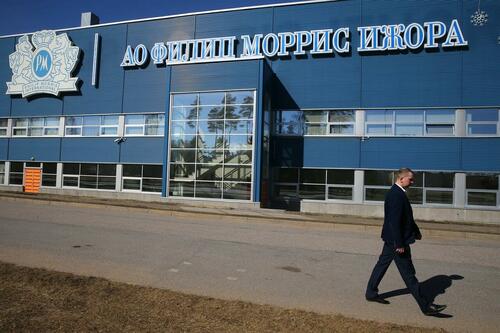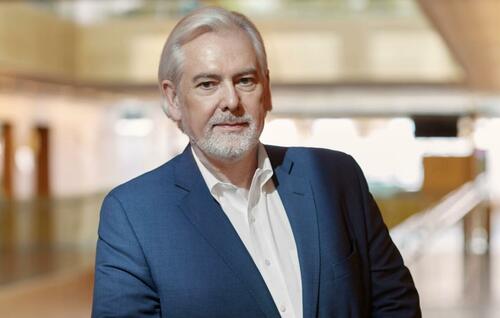Ukraine Declares Philip Morris An ‘International Sponsor Of War’
The Ukrainian government has labelled two tobacco giants “international sponsors of war,” condemning Philip Morris and Japan Tobacco for continuing to conduct business in Russia and paying taxes to the country’s government.
Thursday’s declaration from the National Corruption Prevention Agency (NCPA) adds the two companies and Bermuda-based Bacardi Limited to a list of Ukraine’s corporate enemies that already includes Procter & Gamble alongside many other companies headquartered in Europe, Asia and elsewhere.
There appear to be few real-world implications of Ukraine’s declaration. According to Ukrainska Pravda, a Ukrainian online outlet, “The NACP has sent letters to the heads of international companies from the list of war sponsors, inviting them to visit Ukraine and see the aftermath of Russian aggression with their own eyes.“

In a statement that oddly sounds like an testimonial to Western sanctions’ failure to damage the Russian economy, the NCPA said, “Having confidence in the economic potential of Russia, [Philip Morris] is implementing a large-scale long-term investment program.” Philip Morris enjoyed an 8% jump in Russian revenue in the first year of Putin’s so-called “special military operation” in Ukraine.
As of 2019, Philip Morris brands accounted for 30.1% of the Russian tobacco market, while Japan Tobacco has a nearly 35% market share. Philip Morris operates two factories in Russia, one near Leningrad and another in Krasnodar, a region east of the Crimean Peninsula.
“Notably, at the beginning of Russia’s full-scale invasion of Ukraine, Philip Morris announced its intention to dispose of its Russian business in order to preserve its reputation,” said NCPA (sometimes amusingly abbreviated as NAZK). “However, all ‘attempts’ to sell the Russian operation seem to have been failures, and the corporation still remains one of the largest taxpayers to the Russian treasury.”

In February, Philip Morris CEO Jacek Olczak, citing a duty to shareholders to recover his firm’s $2.5 billion in Russia-situated assets, told the Financial Times a sale was proving impractical in the face of Russian rules. “I cannot just lose the patience and I leave it. It’s their money. It’s not my money, I’m managing this for them. If I had a buyer who could execute the transactions, yes we would do it — but it doesn’t exist…there is no hope…so then I’d rather keep this whole thing.”
Philip Morris International shares barely budged on the news, edging down 24 cents to $94.08 at Thursday’s close, but then rising nearly a dollar in after-hours trading. Behind powerful brands like Marlboro, Parliament, Chesterfield and L&M, the company sells tobacco and other products in more than 180 countries, and currently yields north of 5%.
In a country that has ranked 122nd-worst in a global corruption ranking, you’d think Ukraine’s “National Corruption Prevention Agency” might want keep an internal focus rather than propagandizing against foreign companies engaged in honest international commerce.
Tyler Durden
Sat, 08/26/2023 – 11:00
Zero Hedge’s mission is to widen the scope of financial, economic and political information available to the professional investing public, to skeptically examine and, where necessary, attack the flaccid institution that financial journalism has become, to liberate oppressed knowledge, to provide analysis uninhibited by political constraint and to facilitate information’s unending quest for freedom. Visit https://www.zerohedge.com